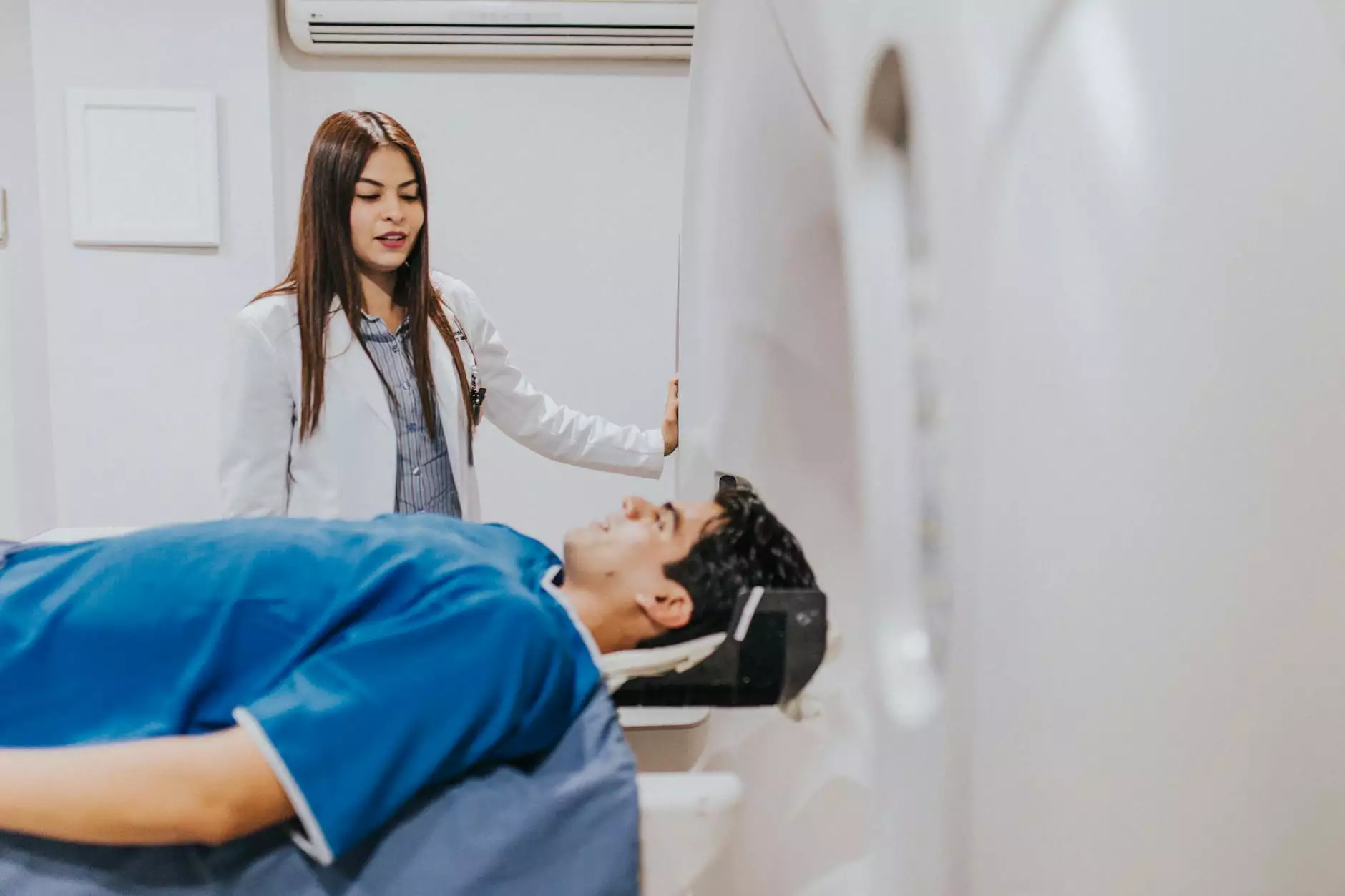Understanding MRI Services: Revolutionizing Diagnostic Imaging

Magnetic Resonance Imaging (MRI) is a powerful diagnostic tool that has transformed the landscape of modern medicine. With its non-invasive nature and unparalleled ability to create detailed images of the body's internal structures, MRI services play a crucial role in the field of health and medical diagnostics. This article aims to provide a comprehensive overview of MRI services, breaking down the procedures, benefits, and considerations for patients seeking these critical medical services.
What is MRI?
Magnetic Resonance Imaging (MRI) is a medical imaging technique used to visualize detailed internal structures of the body. Unlike X-rays or CT scans, MRI uses powerful magnets and radio waves instead of ionizing radiation, making it a safer option for many diagnostic scenarios. MRI is particularly effective for imaging the brain, spinal cord, muscles, joints, and soft tissues.
The Importance of MRI Services in Diagnostic Medicine
The role of MRI services in medical diagnostics cannot be overstated. Here are some key reasons why they are vital:
- Non-invasive procedure: MRI does not require any incisions or injections, making it a safer choice for patients.
- Detailed imaging: MRI provides high-resolution images that help in diagnosing a wide range of conditions effectively.
- No radiation exposure: Unlike other imaging techniques, MRI does not use harmful radiation, making it ideal for repeated use.
- Versatility: MRI can be used to examine various body parts, including the brain, heart, and abdomen, and is essential for assessing complex medical conditions.
Types of MRI Services
There are several types of MRI services available, each designed for specific diagnostic needs:
1. Open MRI
Open MRI machines are designed with a wider opening, making them more comfortable for patients who experience anxiety or claustrophobia during traditional MRI scans. They provide similar diagnostic capabilities while allowing for easier access.
2. Functional MRI (fMRI)
Functional MRI is a specialized type of MRI that measures brain activity by detecting changes associated with blood flow. This is particularly useful in mapping brain functions in research and clinical settings.
3. Contrast-Enhanced MRI
In some cases, a contrast agent may be injected into the bloodstream to improve the visibility of certain areas. This is especially useful for detecting tumors, inflammation, or blood vessel abnormalities.
4. Cardiac MRI
Cardiac MRI is a specialized imaging technique used to visualize the structure and function of the heart. It provides detailed information about the heart's anatomy and can help diagnose various cardiac conditions.
The MRI Process Explained
Understanding the process of undergoing an MRI can help alleviate any concerns. Here is a step-by-step overview:
Step 1: Preparing for Your MRI
Before your appointment, you may be required to remove any metal objects, including jewelry, glasses, and hearing aids, as these can interfere with the magnetic field. You should inform the technician if you have any implants, such as pacemakers or cochlear implants, as these may affect your eligibility for an MRI.
Step 2: The Imaging Procedure
During the MRI scan, you will lie down on a table that slides into the MRI machine. It’s important to stay as still as possible to ensure clear images. The scan typically lasts between 15 to 90 minutes, depending on the area being examined and the specifics of your case.
Step 3: Post-Procedure
After the MRI is complete, you can resume normal activities unless otherwise directed. A radiologist will analyze the images and provide a report to your physician, who will discuss the results with you.
Benefits of MRI Services
The benefits of MRI services extend beyond mere imaging capabilities:
- Accurate Diagnosis: High-quality images lead to more accurate diagnoses, enabling effective treatment plans.
- Early Detection: MRI can detect diseases early, significantly improving treatment outcomes.
- Research and Development: MRI technology continues to evolve, contributing to advancements in medical research and treatment methodologies.
- Patient Safety: The absence of radiation exposure enhances patient safety, making MRI suitable for vulnerable populations, such as children and pregnant women.
Choosing the Right MRI Service Provider
When it comes to selecting an MRI service provider, consider the following factors:
1. Accreditation and Certification
Ensure the facility is accredited by relevant health authorities, which is a testament to its commitment to quality and safety standards.
2. Technology and Equipment
Look for a facility that utilizes the latest MRI technology to ensure high-quality imaging and a faster, more comfortable experience.
3. Experienced Staff
Qualified technicians and radiologists play a crucial role in the quality of the MRI service. Familiarize yourself with their credentials and experience.
4. Patient Comfort
Consideration for patient comfort, such as the design of the MRI machine and the overall environment of the facility, can greatly impact your experience.
5. Accessibility and Location
Choose a facility that is easily accessible to you. Proximity to your home or healthcare provider can be a significant factor, especially if multiple visits are required.
Insurance and MRI Services
Before scheduling an MRI, check with your health insurance provider to understand your coverage. Many plans cover MRI services, but it's essential to clarify:
- Whether the MRI is deemed necessary by your healthcare provider.
- The type of MRI services covered under your plan.
- Any referral requirements from your primary care physician.
- Your financial responsibility, including copays and deductibles.
Future of MRI Technology
The field of MRI technology is continually evolving, with exciting advancements on the horizon. Innovations such as:
- High-Field MRI: Newer MRI machines operate at higher field strengths, yielding even more detailed images.
- Portable MRI: Advances in portable MRI technology are making it easier to perform imaging in various settings, including rural areas or emergency situations.
- Artificial Intelligence: AI is being integrated into MRI services to assist in image analysis, leading to quicker and more accurate diagnostics.
Conclusion
MRI services have become an indispensable part of modern diagnostics, offering unparalleled insights into the human body while ensuring patient safety. From early disease detection to mapping complex medical conditions, the significance of MRI in healthcare is profound and expanding. When seeking MRI services, remember to consider factors like accreditation, technology, and patient comfort, ultimately leading to improved health outcomes and peace of mind.
For anyone considering an MRI, the benefits are clear. Not only does it pave the way for accurate diagnoses, but it also plays a vital role in ongoing medical research and patient safety. By staying informed and choosing the right service provider, patients can take proactive steps toward better health and well-being.









